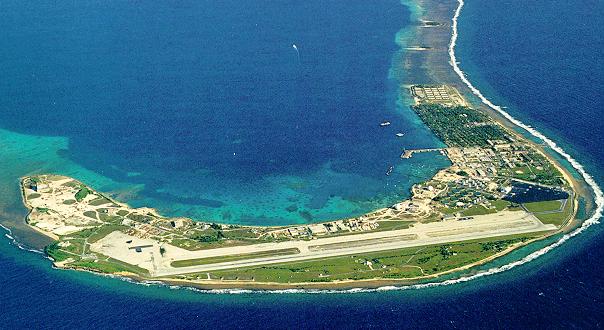
Marshall Islanders are being deported from the United States in increasing numbers, though this year the deportations appear to have declined slightly.
For the past 15 years, Marshall Islanders have been deported from the United States at an annual rate of 16 per year, according to government data.
But the numbers increased dramatically from 2011.
The larger numbers also coincide with ongoing heavy out-migration to the United States that has seen an average of over 1,000 islanders leaving to the U.S. annually since the late 1990s.
More than 30,000 Marshall Islanders are estimated to be living in the U.S.
The Ministry of Foreign Affairs in Majuro maintains records of deportations that are provided by United States law enforcement authorities.
Data maintained since 2002 shows that deportations were single digit through 2006, with the largest number in one year being nine during 2004.
Ten deportations in 2007 heralded the beginning of an increasing trend of Marshall Islanders being deported from the U.S. following convictions for a variety of offenses.
To date, 2013 was the single biggest year, with 37 people being sent back to the Marshall Islands after being convicted of a variety of criminal offenses.
The numbers appear to have dropped off in the first part of this year, with 18 reported through last month, but this is still above the 14-year average of 16 annually.
Crimes of “moral turpitude” are offenses that often lead to deportation from the U.S., although the definition of “moral turpitude” is not defined in U.S. or state law and is left to government agencies and courts to decide.
Crimes that have led to deportations for Marshall Islanders range from violent assaults to failing to pay taxes.
The most common elements involving moral turpitude are fraud, larceny and intent to harm persons or property.
In years past, reports locally and from the Federated States of Micronesia indicated that deportees sometimes attempted name changes to get new passports for returning to the U.S.
But this practice, if it was successful in the past, is unlikely to work going forward: U.S. Immigration has instituted finger printing and photographing of non-U.S. citizens on arrival in the U.S., a development that would normally red flag anyone previously arrested in the U.S.
